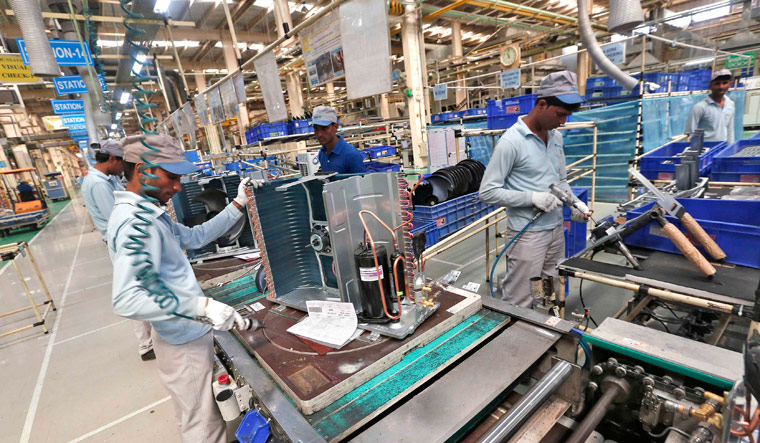Too hot to work? Now we have research behind us for those days when we blame the summer heat for low work output. And we can blame climate change if our productivity has reduced, since that is causing hotter days every year.
A multi institute research, comprising University of Chicago, Indian Statistical Institute and Delhi School of Economics and University of North Carolina has argued that rising temperatures is hitting manufacturing in India, and thereby, Indian economy. Their research says that for every one degree Celsius rise on annual temperature, productivity of industrial plants drops by two per cent.
The study, which analysed high frequency microdata sets of worker output from over 58,000 factories across India, indicated that workers are more likely to be absent from work when it gets very hot, and the aggregate of these effects are likely to have a significant effect on factory production.
There are those who feel that air conditioning the workplace was that one gamechanger which increased output, specially in tropical countries. This study, however, said that temperature regulation in the workplace had its limitations, since it may improve productivity at work, but it doesn't reduce absenteeism, presumably because workers remain exposed to high temperatures at home and outside.
The researchers have raised concern on how rising temperatures might lead to industries introducing further automation and shifting away from labour intensive sectors in hot parts of the world.
“These adaptive responses may negatively influence wage inequality,'' said E. Somanathan of Indian Statistical Institute.
Anant Sudarshan, co-author along with Somanathan, added that, “The trends that we see in our data makes us think that warm countries in the developing world may face a pervasive 'heat tax' that could damage the competitiveness of their manufacturing sectors and further hurt the waves of poor workers.'' He said that research into low cost technologies to protect workers form ambient temperatures might have significant social value.





